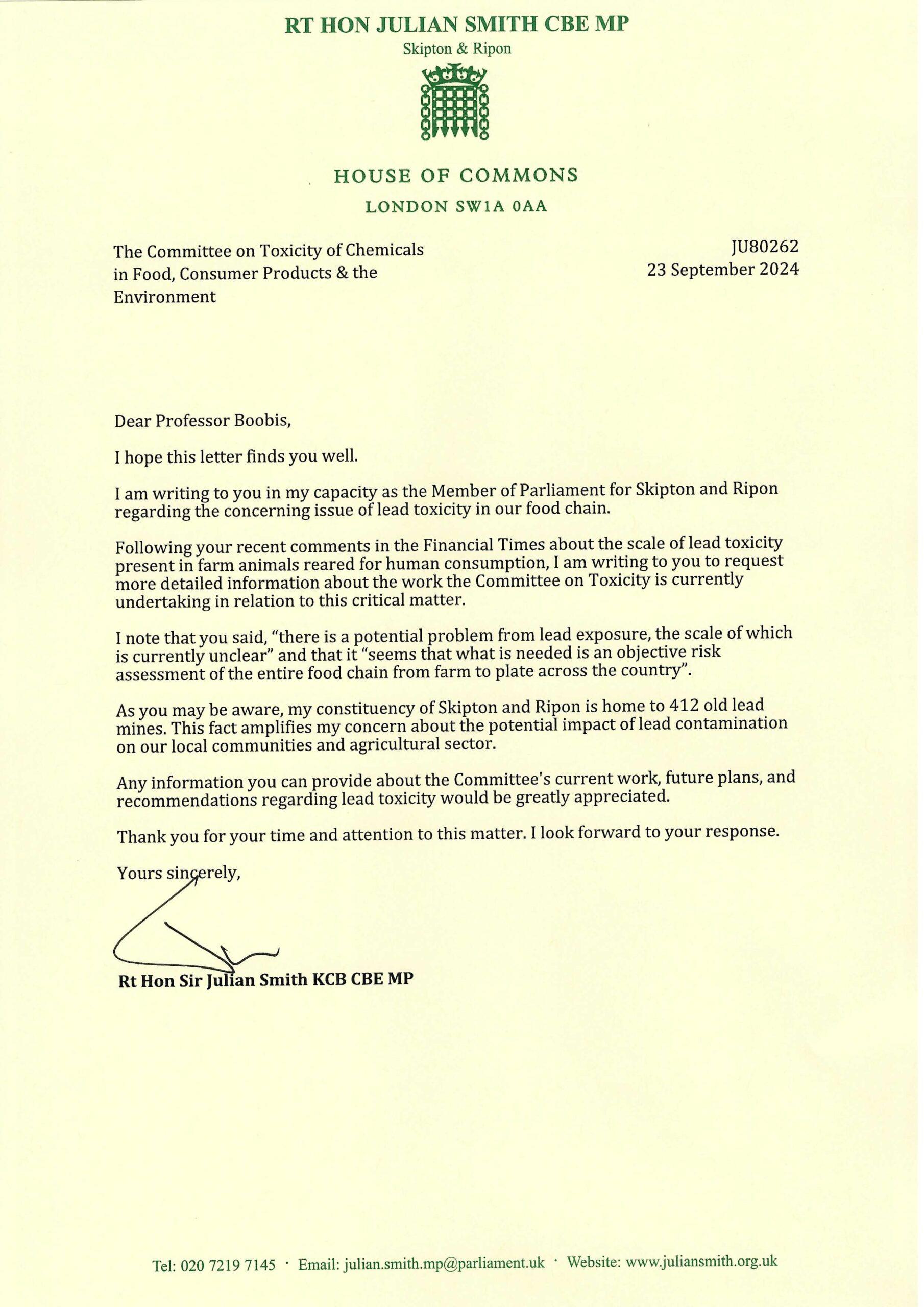Subscribe to trusted local news
In a time of both misinformation and too much information, quality journalism is more crucial than ever. By subscribing, you can help us get the story right.
- Subscription costs less than £1 a week with an annual plan.
Already a subscriber? Log in here.
02
Oct 2024
Local MP seeks answers on potential lead contamination in food chain

Conservative MP Julian Smith has pressed for more information on work into contamination caused by old lead mines.
Sir Julian, who has held the Skipton and Ripon seat for 14 years, intervened after an investigation by the Financial Times revealed an estimated 8,500 old UK lead mines continue to release toxic metals, including lead, into the environment every year.
Sir Julian estimated there are some 412 abandoned mines in his constituency, including the Prosperous Lead Mine near Pateley Bridge, and raised concerns about the toxic metals dispersing into local agricultural systems, waterways, soil and potentially harming the food chain.
Last week he wrote to Professor Alan Boobis, chair of the Committee on Toxicity of Chemicals in Food, Consumer Products and the Environment, for further clarification on the committee's work to prevent such contamination.
The independent scientific committee advises the Food Standards Agency.
Professor Boobis told the Financial Times there was a “potential problem from lead exposure”, but added the scale of which is “currently unclear”.
“It seems what is needed is an objective risk assessment of the entire food chain from farm to plate across the country”, he added.
In his letter to Prof Boobis, Sir Julian said his concerns were “amplified” by number of old lead mines in the constituency, and requested further details on the committee’s work on lead toxicity.
You can read Sir Julian’s full letter to the committee below.

Sir Julian's letter.
According to the World Health Organization, lead poisoning can affect development of the central nervous system and the brain in children, while adults are at risk of high blood pressure, cardiovascular problems and kidney damage.
The Financial Times spoke to a Richmond farmer, who lost nine sheep to lead poisoning.
It followed three weeks of heavy flooding, during which the farmer decided to move his flock to higher ground to save them from drowning.
The sheep returned to their field once the water receded, but the article said both a vet and a toxicologist concluded lead sediment from a nearby abandoned mine had contaminate the field after being carried downstream during the flood. A post mortem attributed the animals' deaths to lead poisoning.
0